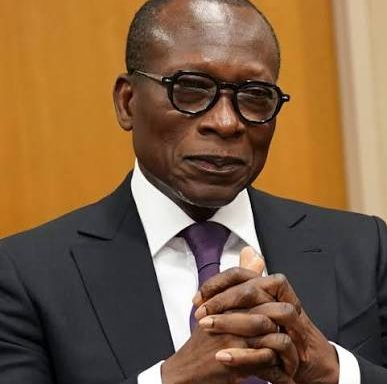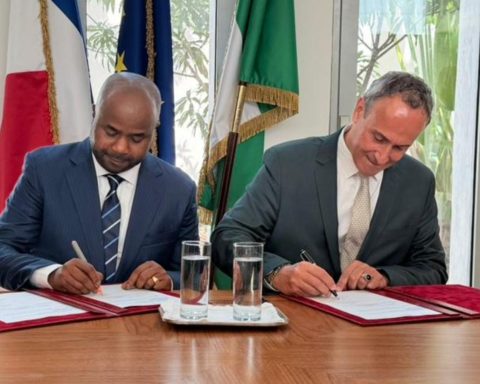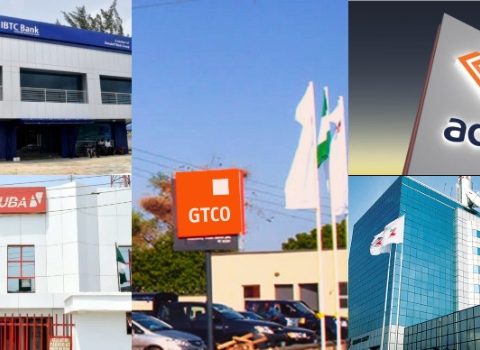Dangote Advocates Halt on Crude-for-Loan Deals
Aliko Dangote, the President of the Dangote Group, has urged Nigeria to stop mortgaging crude oil in exchange for loans, warning that such practices could hurt the future of local refineries. He voiced this concern at the Crude Oil Refinery Owners Association summit in Lagos on Tuesday, emphasising the need for Nigeria to secure its oil reserves for future generations.
“To ensure sufficient feedstock availability, we will need to stop mortgaging crude. It is unfortunate that while countries like Norway are investing oil proceeds in future funds, in Africa, we are spending oil proceeds from the future today,” Dangote said.
Join our WhatsApp ChannelHis remarks come amid rising concerns over Nigeria’s crude-for-loan arrangements with foreign entities, a trend that has been growing over the years.
Nigeria’s Ongoing Crude-for-Loan Deals
Earlier this month, reports surfaced that the Nigerian National Petroleum Company Limited (NNPCL) had committed 272,500 barrels per day of crude oil through various crude-for-loan agreements. These deals, worth a staggering $8.86 billion, involve using Nigeria’s crude resources as collateral. This means that over 8 million barrels of crude are tied up each month to service these loans.
Speaking on this issue, Dangote emphasised the need for change, calling for Nigeria to prioritise using its crude domestically. “We will also need to prioritise the implementation of the domestic crude supply obligation. Expanding crude production capacity is essential to meet the growing demand from local refineries,” he stated.
Building Refinery Capacity Without Government Incentives
Dangote’s vision for Nigeria’s oil industry is bold. He revealed that his company built the 650,000 barrels per day capacity Dangote Refinery without any government incentives. Despite the lack of support, he stressed the importance of incentivising future investors to make Nigeria a refining hub for Africa.
READ ALSO: Dangote Refinery: From Production Delays To Threat Of Sale
“We built the Dangote Refinery without a single incentive from the government. However, to achieve the vision of turning Nigeria into a refining hub for the region, investors need to be incentivised,” he said.
Dangote pointed out that while Africa imports around 3 million barrels of petroleum products daily, several European refineries are shutting down due to stricter environmental regulations. This presents a unique opportunity for Africa to step up its refining capacity.
Crude-for-Loan Challenges Refinery Expansion
The crude-for-loan deals are not only tying up Nigeria’s resources but also limiting the country’s ability to meet local refining demands. Dangote warned that without sufficient support from the government and stakeholders, building the additional 1.5 million barrels per day of refining capacity required to meet Africa’s demand could be a challenge.
“The opportunities are there. Africa imports about 3 million barrels per day of petroleum products. About half of this volume is imported by countries along the coast from Senegal to South Africa. To grab this opportunity, we will need to build 1.5 million barrels per day of additional refining capacity,” he explained.
Jet Fuel Supply Exclusivity for Dangote Refinery
In a related development, the Federal Government has named Dangote Refinery the sole supplier of jet fuel (Jet A1) for Nigerian airline operators. Minister of Aviation, Festus Keyamo, disclosed this decision, highlighting that it would help reduce the operational costs of local airlines by shielding them from fluctuating international oil prices.
“You can see that yesterday we started the naira-for-crude purchase with Dangote. It’s all naira, no dollar component,” Keyamo stated during an interview on Channels TV.
With this move, the government aims to support local industries while reducing reliance on imported fuel products.
Redefining Nigeria’s Oil Strategy
As Nigeria continues to face the pressures of crude-for-loan deals, industry leaders like Dangote are calling for a shift in policy.
Ending the reliance on such arrangements and prioritising domestic crude supply could secure the future of the country’s oil industry and create a sustainable refining capacity for years to come.
Emmanuel Ochayi is a journalist. He is a graduate of the University of Lagos, School of first choice and the nations pride. Emmanuel is keen on exploring writing angles in different areas, including Business, climate change, politics, Education, and others.
- Emmanuel Ochayihttps://www.primebusiness.africa/author/ochayi/
- Emmanuel Ochayihttps://www.primebusiness.africa/author/ochayi/
- Emmanuel Ochayihttps://www.primebusiness.africa/author/ochayi/
- Emmanuel Ochayihttps://www.primebusiness.africa/author/ochayi/

















